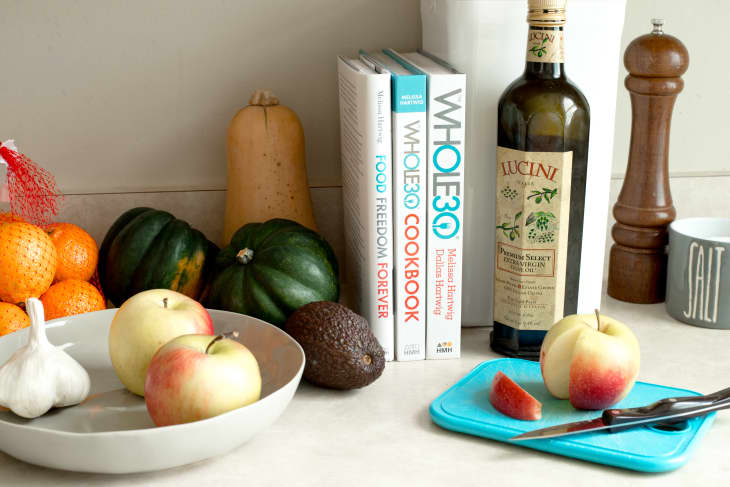How Whole30 Changed My Relationship with Food
When I decided to do Whole30 in January of 2017, I was apprehensive about the program. I got into writing about food because I strongly believe that food can and should bring people joy, and the idea of restricting what you eat made me immensely uncomfortable for a variety of different reasons.
But Kitchn wanted to cover this trend in wellness, and I thought it was important to try it out for editorial reasons. Plus, it was just 30 days, so I didn’t think I was making a huge lifestyle change.
When I was first reading up on what Whole30 entails, Melissa Hartwig (the co-founder of Whole30), said that this program will “change your life.” Yeah, right, I remember thinking. It felt like one of those cheesy tag lines that a bad infomercial would have. So I was surprised to find that, after over a year of finishing Whole30, in retrospect it really had changed my life and the way I eat — but not in the way you might think.
How Whole30 Changed My Relationship with Food
1. Whole30 made me a more mindful eater.
The whole point of Whole30 is to challenge your relationship with food and figure out if anything makes you feel bad. Before I started the program I was convinced that dairy was the culprit behind my bloat, but after 30 days I found that soy was the worst offender. So now, when I have soy — and I still eat soy on occasion — I know how it’s going to affect my body.
My relationship with soy was that catalyst to becoming a more mindful eater in general. When I eat a salad for lunch now, it’s not just because I think it’s delicious — it’s because I know it will make me feel better the rest of the day. And when I want to eat something with a bunch of cheese or soy, I know it won’t make me feel great,but I feel more empowered because I know what’s happening with my body.
2. Whole30 made me reevaluate how I “treat” myself.
When you’re doing Whole30 you’re not supposed to eat anything that feels like a “treat” even if it’s technically on the approved foods list. This was definitely the hardest part of the program for me. When I’m anxious I turn to a glass of wine, and when I’m feeling low there’s nothing quite like ice cream. Instead of confronting what was actually making me feel bad, I was turning to my fridge.
A lot of people do this. It’s nothing new or entirely interesting to eat your feelings, but I don’t think I fully realized how and why I was doing it in the first place. Now when I reach for a pack of Oreos — or whatever else one might consider a “treat” — I usually do it because I want them, not because I’m trying to placate some personal anguish. And yes, I still eat my feelings from time to time (I’m not a robot), but I think I have a better handle on why I’m doing it.
3. Whole30 turned me into a meal planner.
When I first started working at Kitchn I remember thinking that meal planning was for people who had their stuff together, and that certainly wasn’t me. Who has time to plan every single thing they’re doing to eat in a given week? Oh, how I was wrong.
Meal planning is absolutely essential for Whole30, because you never want to be stuck without any compliant ingredients. At first my foray into meal planning for Whole30 was a little rocky: It took too long, I bought too much food and things went bad, I spent to much money, etc. But after a while I got into the swing of things. I learned how many meals I needed to plan in advance, and how doubling a recipe made things way easier. I learned to love knowing what I was going to eat instead of waking up and scrambling to make whatever was in the fridge.
4. Whole30 made me embrace leftovers.
The last point is a perfect lead in to my next point: If you want to be a better meal planner and save money on your grocery bill, you need to love leftovers. Unless you are incredibly wealthy and have a lot of time on your hands to cook, leftovers are your lifesaver.
I quickly learned on Whole30 that the only way I’d stay sane was to make giant batches of things and eat it throughout the week. Instead of it being boring – like I know many people think about leftovers — it was actually such a welcome relief to come home for dinner and remember I didn’t have to cook (again).
Whole30 isn’t for everyone, and it’s not something I’m sure I would do again in the foreseeable future. But those 40 days I was on the program (30 days plus 10 days for reintroduction of food groups) ended up having an unexpected impact on me that makes me glad I tried it out. My wallet and mental health are certainly thankful.
